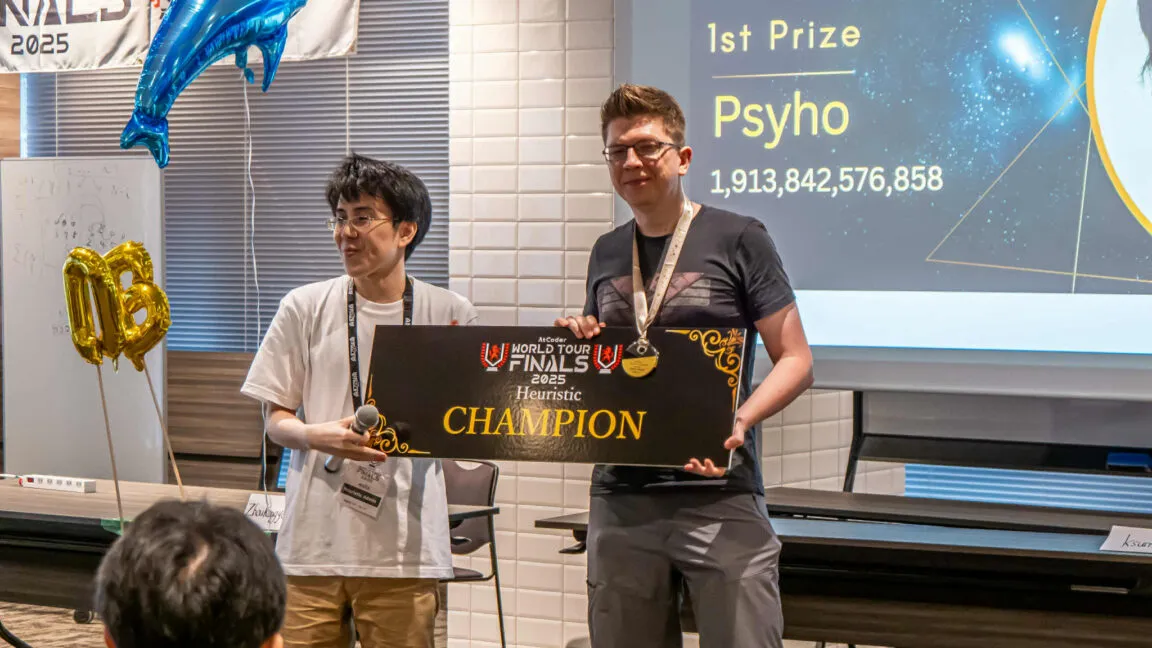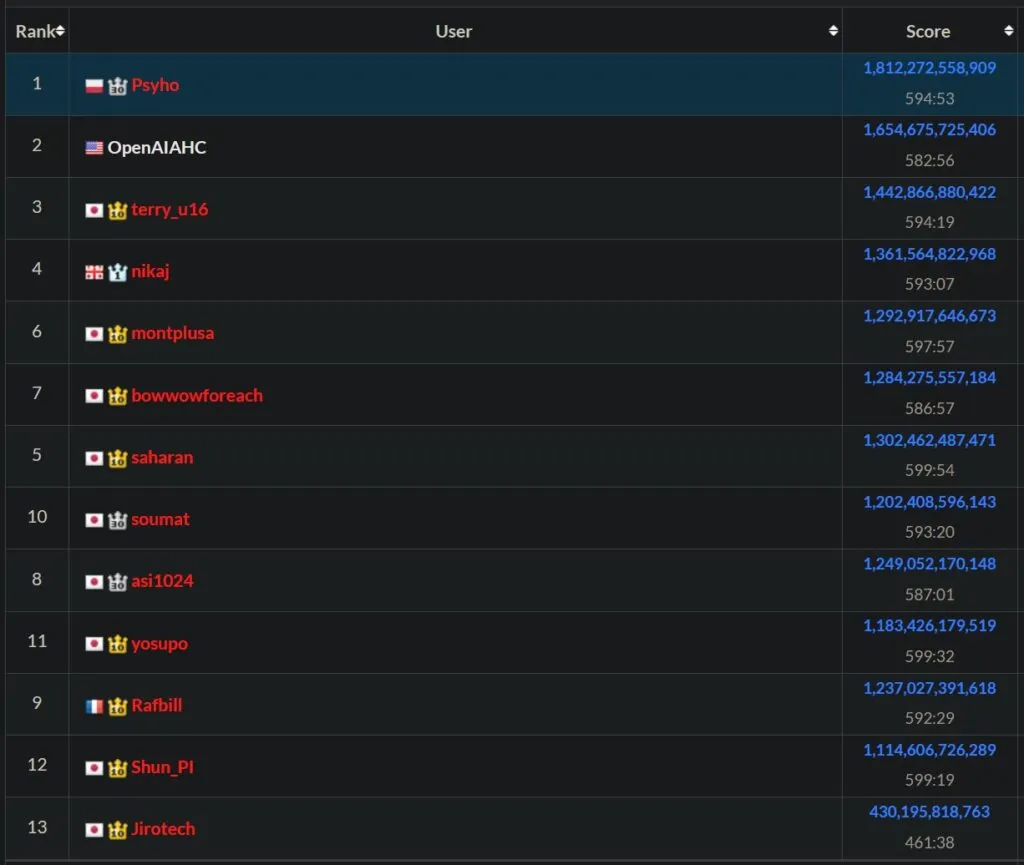
A Polish programmer running on fumes recently accomplished what may soon become impossible: beating an advanced AI model from OpenAI in a head-to-head coding competition. The 10-hour marathon left him "completely exhausted."
On Wednesday, programmer Przemysław Dębiak (known as "Psyho"), a former OpenAI employee, narrowly defeated the custom AI model in the AtCoder World Tour Finals 2025 Heuristic contest in Tokyo. AtCoder, a Japanese platform that hosts competitive programming contests and maintains global rankings, held what may be the first contest where an AI model competed directly against top human programmers in a major onsite world championship. During the event, the maker of ChatGPT participated as a sponsor and entered an AI model in a special exhibition match titled "Humans vs AI." Despite the tireless nature of silicon, the company walked away with second place.
"Humanity has prevailed (for now!)," wrote Dębiak on X, noting he had little sleep while competing in several competitions across three days. "I'm completely exhausted. ... I'm barely alive."
The competition required contestants to solve a single complex optimization problem over 600 minutes. The contest echoes the American folk tale of John Henry, the steel-driving man who raced against a steam-powered drilling machine in the 1870s. Like Henry's legendary battle against industrial automation, Dębiak's victory represents a human expert pushing themselves to their physical limits to prove that human skill still matters in an age of advancing AI.
Both stories feature exhausting endurance contests—Henry drove steel spikes for hours until his heart gave out, while Dębiak coded for 10 hours on minimal sleep. The parallel extends to the bittersweet nature of both victories: Henry won his race but died from the effort, symbolizing the inevitable march of automation, while Dębiak's acknowledgment that humanity prevailed "for now" suggests he recognizes this may be a temporary triumph against increasingly capable machines.
While Dębiak won 500,000 yen and survived his ordeal better than the legendary steel driver, the AtCoder World Tour Finals pushes humans and AI models to their limits through complex optimization challenges that have no perfect solution—only incrementally better ones.
Coding marathon tests human endurance against AI efficiency
The AtCoder World Tour Finals represents one of competitive programming's most exclusive events, inviting only the top 12 programmers worldwide based on their performance throughout the previous year. The Heuristic division focuses on "NP-hard" optimization problems. In programming, heuristics are problem-solving techniques that find good-enough solutions through shortcuts and educated guesses when perfect answers would take too long to calculate.
All competitors, including OpenAI, were limited to identical hardware provided by AtCoder, ensuring a level playing field between human and AI contestants. According to the contest rules, participants could use any programming language available on AtCoder, with no penalty for resubmission but a mandatory five-minute wait between submissions.

The final contest results showed Psyho finishing with a score of 1,812,272,558,909 points, while OpenAI's model (listed as "OpenAIAHC") scored 1,654,675,725,406 points—a margin of roughly 9.5 percent. OpenAI's artificial entrant, a custom simulated reasoning model similar to o3, placed second overall, ahead of 10 other human programmers who had qualified through year-long rankings.
OpenAI characterized the second-place finish as a milestone for AI models in competitive programming. "Models like o3 rank among the top-100 in coding/math contests, but as far as we know, this is the first top-3 placement in a premier coding/math contest," a company spokesperson said in an email to Ars Technica. "Events like AtCoder give us a way to test how well our models can reason strategically, plan over long time horizons, and improve solutions through trial and error—just like a human would."